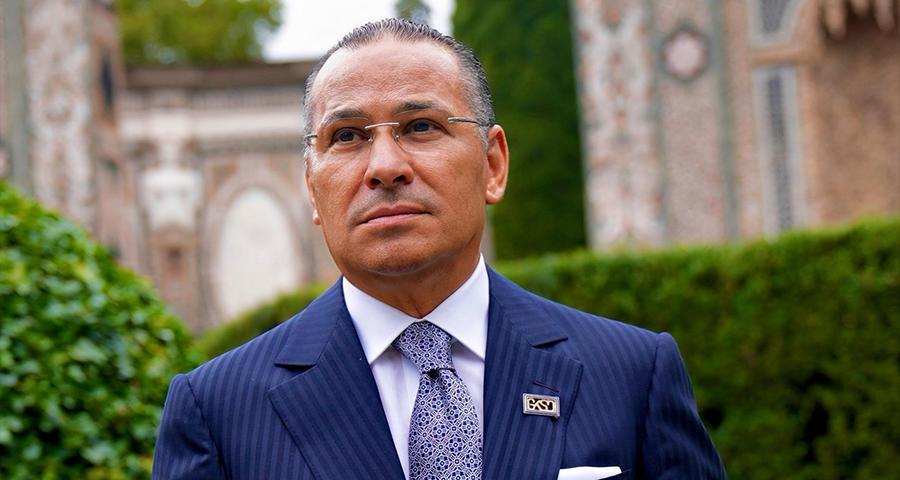Only a few individuals operate with the strategic effectiveness with which Kamel Ghribi works in the high-stakes realm of global healthcare. Over the years, he has emerged as one of the most influential figures canvassing for universal healthcare. Whether attending the Rome MED Dialogues or behind closed doors at several key bilateral forums, he is always focused on steering the agenda of cross-border healthcare collaboration, especially between Europe and the Middle East.
One of the interesting things about this visionary is that he isn’t merely interested in responding to health crises. Instead, he anticipates them, putting measures in place to address the challenges. This is one of the things that sets him apart in the increasingly urgent space of global healthcare diplomacy.
A Strategic Vision That Aligns Health with Global Priorities
Kamel Ghribi’s growing influence is driven by his vision to see people healthy. Over the past decade, he has consistently framed healthcare not as a standalone humanitarian cause but as a central pillar of economic stability and geopolitical security.
At several international conferences, such as the World Economic Forum and high-level policy gatherings in Rome and Riyadh, Ghribi has advanced a compelling argument that healthcare must be treated as a foundational element of diplomacy, on par with energy and defence. This strategic framing has found resonance among both public and private stakeholders, many of whom now recognise that healthcare is no longer a soft power concern but a hard-edged matter of national interest.
Ghribi’s foresight became particularly evident during the COVID-19 pandemic, where he was among the earliest voices calling for a coordinated transcontinental approach to vaccine access, hospital investment, and health security infrastructure, particularly in the Global South.
A Master at Networking and Diplomacy
Where Ghribi truly excels is in his ability to bridge worlds. From Geneva to Abu Dhabi, he maintains a vast network of decision-makers, including presidents, ministers of health, private equity leaders, and heads of international organisations.
Ghribi’s signature move is convening power brokers in neutral, forward-looking settings where real cooperation can emerge. These aren’t just symbolic roundtables; they are spaces where investment deals are seeded, regulatory barriers are broken, and cross-border partnerships take shape. His role in facilitating public-private healthcare investments (including in fragile or underserved markets) demonstrates his unique capability to align commercial incentives with public health goals.
A recent example includes his behind-the-scenes role at the Rome MED Dialogues, where he was instrumental in brokering health cooperation talks among European and MENA-region officials, helping reframe Mediterranean health collaboration not as charity, but as mutual resilience planning.
Ghribi’s Dual Influence in Europe and the Middle East
Ghribi’s identity is naturally bicontinental, thanks to his Tunisian heritage and deep business ties to Italy. This interconnectedness allows him to function as a diplomatic bridge between Europe and the Middle East. He has nurtured enduring relationships with key stakeholders in several Middle Eastern countries, including the UAE and Saudi Arabia, with a focus on strengthening local health infrastructure through both private investment and policy support. He has also championed hospital modernisation efforts, advocated for knowledge transfer, and pushed for localised solutions to regional health burdens, including digital health systems.
In Europe, particularly Italy and the wider Mediterranean basin, Ghribi has worked to elevate health diplomacy as a cornerstone of EU external action. Through his support of regional health forums and policy symposia, he has created pathways for closer EU-MENA healthcare alignment, an effort that has gained momentum in light of rising migration, demographic pressures, and post-pandemic recovery needs.
He has also made contributions to healthcare access in Eastern Europe, including Poland, though his primary focus remains the Euro-Mediterranean corridor.
Results That Speak for Themselves
While some people like to operate in the theory and rhetoric of international diplomacy, Ghribi’s work is measurable. He has played a key role in funding cross-border hospital ventures, facilitating health tech accelerators, and convening stakeholders for direct action during health emergencies. His partnerships have helped fast-track mobile clinics, improve training for healthcare workers, and promote equitable access to diagnostics and vaccines in regions where such support often arrives too late.
Notably, his approach reflects a growing consensus in global health, which is that public-private partnerships are not just useful, but essential. The World Bank and organisations like Global Health 50/50 have echoed the need for financing models that blend innovation with inclusion. This is a model that Ghribi has long championed.
Moreover, his work supports the argument that diplomacy shouldn’t be confined to government channels. Instead, strategic philanthropy and private influence, when leveraged responsibly, can unlock stalled negotiations and accelerate lifesaving progress.
Speaking of philanthropy, Ghribi has demonstrated his deep commitment. In his home country of Tunisia, he was instrumental in establishing a specialised children’s heart catheterisation laboratory at La Rabta Hospital, located in Tunis. This facility, equipped with advanced diagnostic imaging technology, enables cardiologists to effectively treat heart conditions in children. The lab stands as a testament to his dedication to enhancing medical infrastructure across the region.
Ghribi’s philanthropic reach extends beyond Tunisia to disaster-stricken regions. Following the devastating earthquake in Syria in February 2023, he coordinated the delivery of humanitarian aid through the ECAM Council. This included four ambulances, medical equipment, medicines, and clothing, among other items, transported via Italian Air Force planes to support the Syrian Red Crescent’s relief efforts.
Similarly, in the aftermath of the earthquakes that struck Morocco and Turkey, Ghribi mobilised resources to provide essential aid, demonstrating his unwavering commitment to humanitarian assistance across borders. His actions underscore a philosophy that transcends business, focusing on tangible support for communities in crisis.
The Future of Global Healthcare Diplomacy and Ghribi’s Role in It
As the world continues to grapple with cascading health challenges exacerbated by climate-driven disease outbreaks and ageing populations, the need to find urgent solutions has become even more pressing. To this end, Kamel Ghribi’s expertise will continue to be relevant. His blend of foresight, convening power, and grounded pragmatism offers a glimpse into the future of healthcare diplomacy: agile, multi-stakeholder, and relentlessly strategic.
If global healthcare cooperation is to keep pace with the scale of need, it will require exactly the kind of behind-the-scenes leadership Ghribi embodies. While others seek the spotlight, he moves policy forward quietly, consistently, and with remarkable effect.




